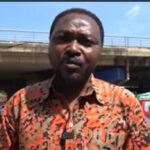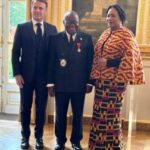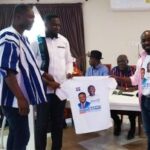A US-based non-governmental organization is providing relief to residents in some communities whose water sources have been highly polluted through illegal mining operations.
Soles of Hope, which plans to spend several thousands of cedis on over 20 ‘galamsey’ affected communities in Ashanti, Eastern, Central and Western regions, believes those communities deserve to be provided with clean drinking water. Officials of the NGO said it is poised to positively impact on beneficiary communities.
A US-based couple, Fred Osei-Yeboah and Dr. Opokua Osei-Yeboah, the brain behind this project have been executing life-centered activities, such as providing water and educational infrastructure in less-endowed communities in their native Ghana.
The couple, through their NGO, Soles of Hope, recently handed over a brand-new computer laboratory and mechanized borehole to the people of Kpandai in Northern Ghana.
The NGO is now turning attention to support the fight against illegal mining through the provision of clean drinking water to endemic communities.
Atwereboanda, a farming community situated downstream of the Pra River in the Shama District of the Western region is one of the beneficiary communities.
Though there is no ‘galamsey’ activity happening in the area, the community by its location is feeling the impact of illegal mining several kilometers away from ‘galamsey’ sites in the Ashanti and Central regions.
Residents, until now, had no option than to resort to the use of the highly polluted Pra River for household chores including bathing and washing.
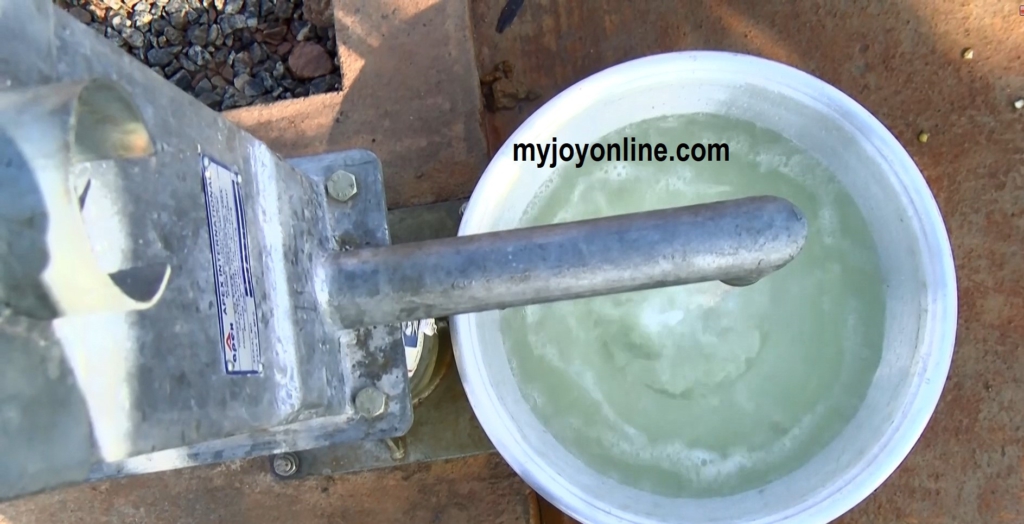
Children also take their morning bath in the dirty water before going to school.
Afua Awotwe is one of the residents who is concerned about the pollution of their water sources.
She had returned from the banks of River Pra where she fetched water that is highly polluted.
“I have kept the water somewhere because I cannot use it for anything unless I buy alum,” she told me.
One has to patiently wait for several minutes, sometimes hours to prepare water from the polluted river for household chores.
“Even then, I cannot use it for anything. You get rashes on the skin even after applying alum. It is worse when used to wash utensils. You will need a rag to clean the dirt afterwards,” Madam Awotwe added.
Thanks to Soles of Hope, that situation will change as the community benefits from a borehole.
Assemblyman for the Amisakrom-New Junction electoral area, Alpha Justice Wonkye, is happy for the people.
“We say this borehole has become our saviour in terms of water resource because school children instead of coming here to bath, they are no more coming here. We are going to make good use of that borehole”
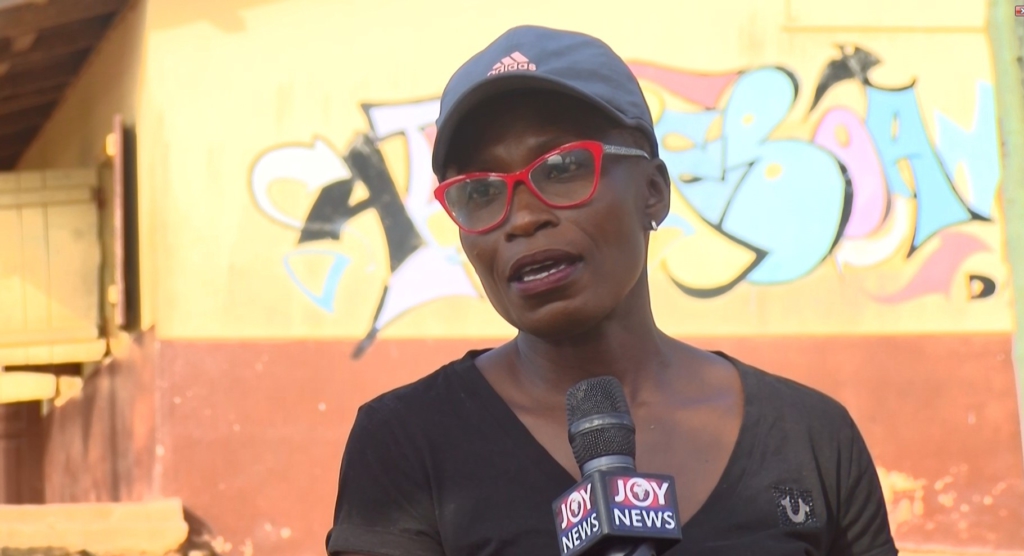
Chief Executive of Soles of Hope, Dr. Opokua Osei-Yeboah, is unhappy that Atwereboanda and other galamsey-plagued communities have been neglected by the government.
“These communities have a lot of difficulties; getting clean water to do anything and we can’t forget them,” she said. It takes Soles of Hope to look at deep hidden communities like these [Atwereboanda, others] and reach out.
“We are looking at 20 communities in Ashanti, Eastern, Western and Central. So, these are the communities that we are targeting; the ones that are close to where they have seen the most [galamsey] impact,” she added.
The cost of a hand-pump borehole is estimated at GHC30,000, equivalent USD2,000. This means the NGO will need not less than GHC600,000 (USD40,000)
Nonetheless, Dr. Opokua, a medical doctor in Public Health in the US who is afraid of the consequences of illegal mining on unborn babies said the NGO is equal to the task.
“Yes, we are aware of the cost involved, but as an NGO, we are challenged by how the lives of the people, especially women and children have been impacted negatively by activities of illegal mining to do more.”
She wants the government and other stakeholders to pay attention to communities along river bodies who have been affected by ‘galamsey’.

